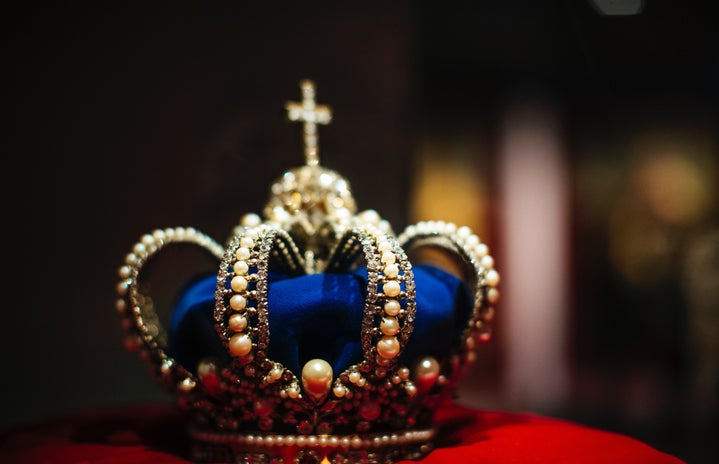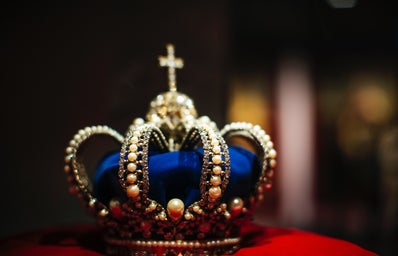If you’re a fan of fantasy, complex political dramas, or have heard that one TikTok audio about a “Negroni sbagliato with prosecco in it,” you’re probably aware of “House of the Dragon”, HBO’s prequel to “Game of Thrones.” The show has emerged a smash hit with popularity on par with its predecessor, largely thanks to its intensely immersive acting performances, intricate story, and standout character writing. The internet has become particularly enthralled by protagonist Rhaenyra Targaryen (played by Milly Alcock and Emma D’arcy), whose refreshing depictions as a heroically compelling yet morally complicated crown princess has won the hearts of viewers. In stark contrast to her stellar reception is her political rival and former best friend, Alicent Hightower (played by Emily Carey and Olivia Cooke). The antagonistic yet sympathetic Green Queen has become an extremely hated figure among “House of the Dragon” fans, with many going so far as to give her the nickname “Alicunt.”
Alicent Hightower’s reception among the public has been very disheartening for me. While other morally complex characters in the show are praised for their depth, she has been written off as manipulative and evil, making her, in my opinion, the most misunderstood character in the show by far. What so many audience members fail to see is that Alicent is much less a villain than she is a victim of the patriarchal social systems within Westeros.
There will be major spoilers for all episodes House of the Dragon Season 1, so I highly encourage you to watch the show before reading. Also a content warning, there will be brief mentions of sexual assault, so read with care.
At the beginning of the show, Alicent appears as a supporting character with little power of her own outside of her status as the daughter of the Hand of the King and best friend of the crown princess. This all changes after the death of Queen Aemma, Rhaenyra’s mother and wife of King Viserys. In the aftermath of her death, Alicent’s father, Otto, instructs her to comfort Viserys, knowing that her compassion and kindness would put her in his favor, making Alicent a frontrunner for when Viserys inevitably took another wife. His plan, which was unknown to Alicent, succeeds: Viserys announces that he’s going to marry her, blindsiding her. Up to this point Alicent had no agency over her political position but rather was put there by others while she followed the instructions she thought were her duty as a noblewoman in a highly patriarchal society.
This expectation that following duty means the death of personal freedom is a common theme throughout the show. For Alicent, she is married against her will due to the manipulations of her father, making her marriage her duty. Then after that, having children becomes her duty, which she clearly doesn’t enjoy. These “duties” robbed her of her youth, her love life, and her relationship with her best friend. Alicent is a queen in chains, lacking any freedom of her own because she is forced to exist in a system that restricts women, especially noble ones, into very specific roles. Her children further chain her down, and although she loves them she doesn’t seem to want to mother them.
Because Alicent was constantly restricted and made to do things she didn’t want, it makes sense why it was so frustrating for her to see Rhaenyra, as heir to the Iron Throne, being able to break boundaries and achieve a freedom she could only dream of. Rhaenyra has political power, she’s a dragonrider who can fly wherever she wants, and she gets to have romantic relationships with who she wants, despite her status as a woman of the nobility. Rhaenyra sleeps with her knight and her first three children are bastards born to a man who she had a genuine romantic relationship with, whereas Alicent is forced to have children with a man twice her age. They contradict each other because while Rhaenyra has a duty, she has freedom outside of it. Alicent’s duty denies her of any outside freedom.
Which brings us to the succession crisis at the heart of the story: Rhaenyra and Aegon II (Alicent’s son) both have a claim to the throne. Rhaenyra is true heir because her father named her it, but Aegon, although much younger, is the first-born son. Many think this makes him the true heir because they don’t believe a woman should be allowed to take the throne. Initially, Alicent supports Rhaenyra when the struggle for succession was between her and her uncle, Daemon, but when she marries Viserys she is forced to choose between Rhaenyra and her son. Her friendship with Raenyra and her love for her children cannot coexist. To be accepted by Westeros and ensure her claim to the throne as a woman, Rhaenyra would likely be forced into killing her competitors, including Alicent’s children. Alicent’s children whom she lost her youth for, who she entered a dull and loveless marriage for, who she lost her freedom for. Alicent’s children are the only legacy she has. I believe that for her, ensuring her son becomes King over her former best friend wasn’t about her wanting any power, it was feeling like if she lost her children everything she had sacrificed would be for nothing.
At the end of the show, as Viserys is sick and dying he puts political control of the country in the control of the Hand King and the Queen (Father-Daugther duo Otto and Alicent). Now Alicent begins to hold the cards. She’s positioned herself to a place where she has a substantial amount of power and control, yet despite this she is still trapped. While she no longer has to have sex with Viserys to produce children, she is still forced to sell her body (or rather, a look at her bare feet) to Larys Strong in exchange for information vital to her ability to navigate through everyone else’s political schemes. Alicent has always been forced to exist within a patriarchal box, and so whenever she politically maneuvers it’s within the confines of that box. On the other hand, Rhaenyra maneuvers outside the box and outside convention for a woman. After being trapped in a man’s system for so long Alicent has adapted to it, both for her survival and for the survival of the children she’s chained to. As badass grandmother Rhaenys puts it, “Still you toil in service to men.” Alicent “toils in service to men” because she was never allowed anything different, so when she finally achieves power she doesn’t know how to break the system, instead working inside it and perpetuating it for other women.
So no, she’s not evil, she’s not a snake, and she’s not “Alicunt”. She’s a misunderstood victim that has done what she does because of the circumstances she was put in. She’s still an antagonist and she’s done objectively bad things (such as trying to stab a child’s eye out, not forgiving her for that one) but so has almost every main character in the show. Maybe not trying to mutilate a literal child, but Daemon schemed against his brother and started a war just to spite him, Rhaenyra faked the death of her husband so she could marry her uncle, hell even Viserys married a woman half his age who he knew his daughter was best friends with. That’s what makes the characters so multi-dimensional, it’s because they’re all morally grey. Judge Alicent how you want, but it’s clear she’s a product of the culture she was forced to adapt to.



